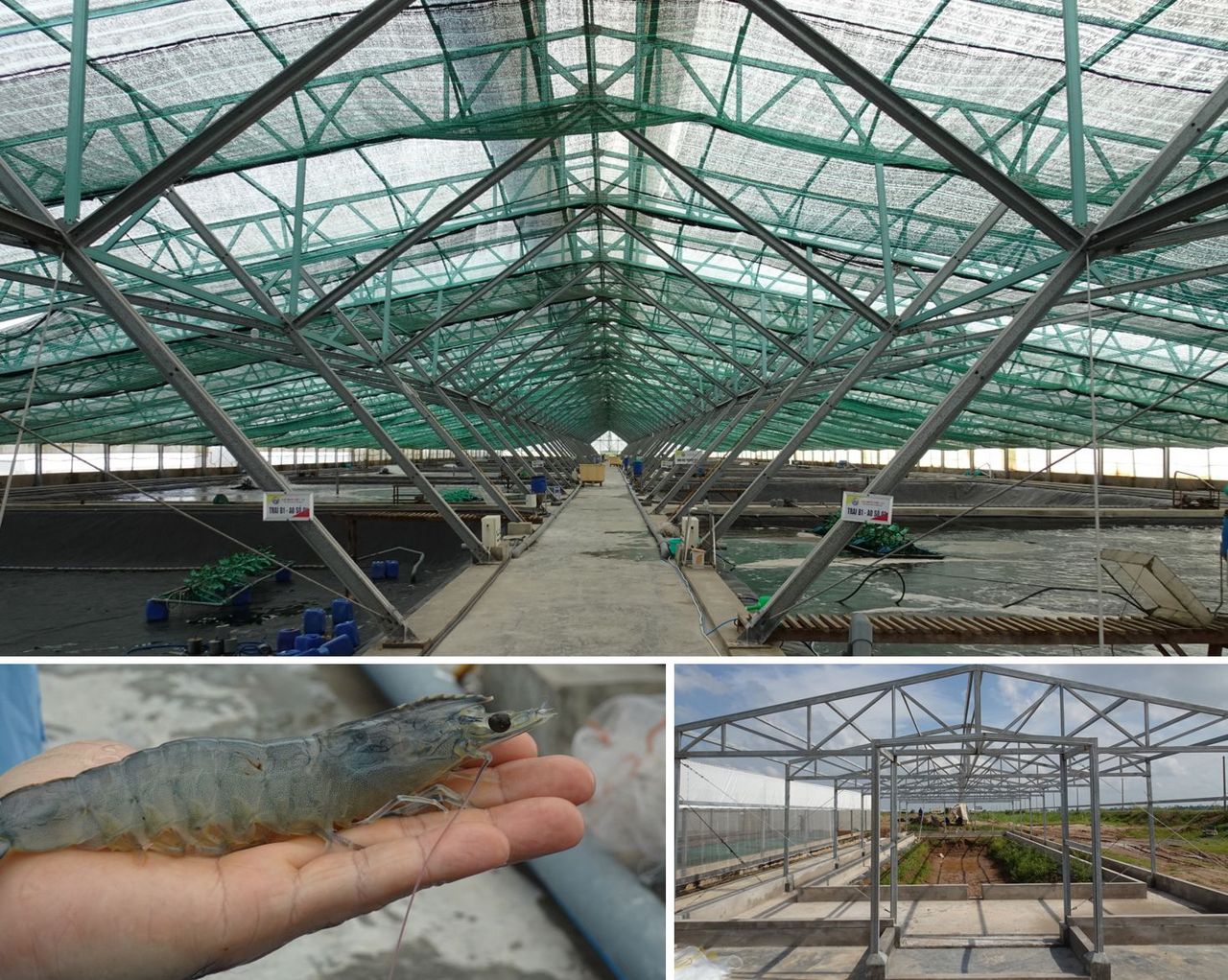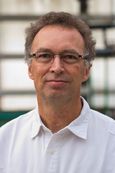Project
Solar-Aquaculture: Multi-layer production system for future

Solar-Aquaculture Habitats as Resource-Efficient and Integrated Multilayer Production Systems
Vietnam’s population and its economy are growing rapidly. This leads to an increasing land use competition between agriculture and the energy industry. Aquaculture farms equipped with photovoltaics can enable multiple land use and improve the economic situation of rural areas in southern Vietnam.
Background and Objective
The interdisciplinary project is coordinated by the Fraunhofer Institute for Solar Energy Systems and aims at multiple use of aquaculture facilities. To this end, aquaculture facilities in southern Vietnam will be roofed and equipped with photovoltaic elements. This will also allow for adaptations to climate change by shading a quaculutre ponds and reducing water consumption.
Target Group
Aquaculture farmers (from large- to medium- and small-sized enterprises) in the Mekong region, Vietnam and other countries
Approach
In addition to the Fraunhofer Institute for Solar Energy Systems, other project partners are the Thuenen Institute for Fisheries Ecology, the Viet Uc Seafood Group, the Nong Lam University in Ho Chi Minh City, the German Corporation for International Cooperation GmbH as well as other institutes and companies from the energy and photovoltaics sector.
The work in the field of aquaculture is carried out by the scientists of the Thünen Institute in close cooperation with the Viet Uc Seafood Group and the Faculty of Fisheries at Nong Lam University. The aim of the aquaculture subproject is to evaluate how the roofing of aquaculture ponds affects shrimps and pangasius, to define maximum levels of shading and to develop husbandry and feeding regimes adapted to specific conditions.
Our Research Questions
- What are the shading effects of photovoltaic panels on production processes of pangasius and shrimp aquaculture systems, specifically:
- How does shading effect the feeding behaviour of shrimp and pangasius?
- How does the water quality vary under different shading conditions?
- How do Biofloc-PV systems perform compared to standard Biofloc and conventional systems with regard to material and nutrient flow?
- How can the Aqua PV systems be transferred to small- and medium sized enterprises?
Involved Thünen-Partners
Involved external Thünen-Partners
- Fraunhofer-Institut für Solare Energiesysteme (Fraunhofer-ISE)
(Freiburg, Deutschland) - Nong-Lam University (NLU)
(Ho-Chi-Minh-City, Vietnam) -
Deutsche Gesellschaft für Internationale Zusammenarbeit (GIZ) GmbH
(Bonn, Deutschland) - Viet Uc Seafood Group
(Ho-Chi-Minh-City, Vietnam) - Suntrace GmbH
(Hamburg, Deutschland) - SMA Sunbelt Energy GmbH
(Niesethal, Deutschland)
Funding Body
-
Federal Ministry of Education and Research (BMBF)
(national, öffentlich) -
German Aerospace Center (DLR)
(national, öffentlich)
Duration
8.2019 - 5.2023
More Information
Project funding number: 01LZ1805D
Project status:
finished

![[Translate to English:] [Translate to English:]](/media/_processed_/2/9/csm_Embryo-Exp_Gelege_9F_dpf5-200513111619_c8534a8199.jpg)
![[Translate to English:] [Translate to English:]](/media/_processed_/2/9/csm_Embryo-Exp_Gelege_9F_dpf5-200513111619_9027994d44.jpg)

![[Translate to English:] Logo des Bundesministerium für Ernährung und Landwirtschaft](/media/allgemein/logos/BMEL_Logo.svg)